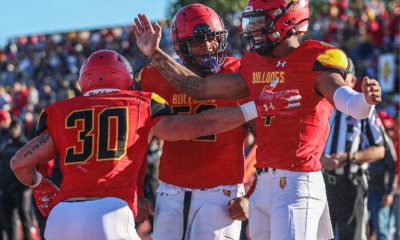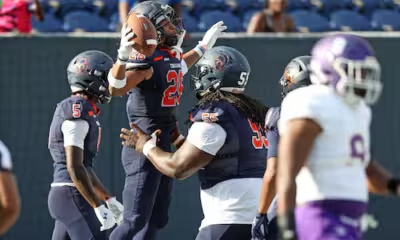November 19, 2023 – Greenville, SC –
In an unfolding drama that’s captivated the collegiate sports world, the National Christian College Athletic Association (NCCAA) is grappling with a scenario that’s as unprecedented as it is confounding. The stage is set for the Victory Bowl, the season’s crowning event, yet it remains conspicuously vacant. For the first time, no team qualifies. It’s a sports narrative that’s more akin to a mystery novel – the central event is missing its key players. This development is a startling deviation from the norm and poses serious questions about the state of competition within the NCCAA. Consider the cases of Ottawa University Arizona and Concordia University Ann Arbor. Both teams have had impressive runs this season, yet they find themselves in an odd predicament – a championship without contenders. It’s a situation that underscores a deeper issue within the association, hinting at potential gaps in competitive depth and engagement.
The plot thickens when we delve into the stories of emerging programs within the NCCAA. Take Carolina Christian College, for instance. In a bold move, the college is laying down the foundation for its first-ever football team, eyeing the 2024 season for its debut. Under the guidance of Coach James Littlejohn, a coach with a rich tapestry of experience spanning 16 years across various levels of football, the program is a beacon of hope and ambition. Yet, the challenges it faces are emblematic of what it takes to build a successful collegiate football program from scratch. Recruiting, training, and molding a competitive team in the dynamic landscape of collegiate football is a monumental task, filled with hurdles and uncertainties. Simultaneously, the experiences of schools like Virginia University of Lynchburg and the University of Fort Lauderdale also add layers of complexity to the narrative. While the specifics of their recent challenges are not entirely transparent, their stories reflect the broader theme of adaptation and perseverance within the NCCAA. These programs, each grappling with their unique set of hurdles such as player retention and meeting the rigorous standards of NCCAA, represent the dynamic and often unpredictable nature of collegiate sports.
This scenario paints the NCCAA as an association at a pivotal juncture. On one hand, it faces the challenge of upholding competitive standards and ensuring a robust playing field. On the other, it’s tasked with nurturing the growth and development of its member institutions, especially the emerging programs that are vital for the league’s future vitality. The absence of qualified teams for the Victory Bowl is not just a pause in the annual sports calendar; it’s a symptom of deeper issues that might require strategic intervention. Looking forward, the NCCAA’s path is lined with both challenges and opportunities. Nurturing an environment conducive to the growth of new programs like Carolina Christian College and supporting established ones like Virginia University of Lynchburg and the University of Fort Lauderdale through their tribulations, will be key. The success or failure of these programs will not only impact their immediate futures but will also significantly influence the trajectory of NCCAA football. The story of this NCCAA football season is more than a tale of a missing championship. It’s a narrative steeped in complexity, filled with potential turning points, and replete with characters and institutions facing pivotal moments. The unfolding events of this season could very well set the stage for a reimagined and reinvigorated future for collegiate football within the NCCAA. The journey of these programs, marked by their struggles and aspirations, is not just a chapter in their history but a beacon that could light the way for the future of collegiate sports in the association.










